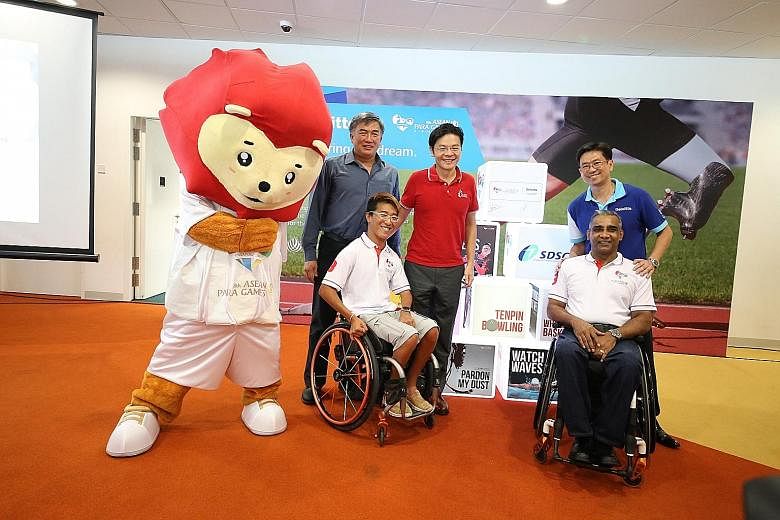Singapore's sports officials can take pride in successfully staging the recent SEA Games, with the biennial event well supported by the general public and many events playing to thrilled, sell-out crowds.
But they will have a different challenge when the country holds the Dec 3-9 Asean Para Games. It will be the Republic's first time hosting the Games, which is the disabled athletes' version of the SEA Games.
Lim Teck Yin, chairman of the Singapore Asean Para Games Organising Committee (Sapgoc), said: "This Games is completely different in terms of its requirements.
"Many people will not be familiar with the sports in the Para Games.
"We will need to raise awareness about the sports that are going to be played, the rules and skills involved in the Games."
He was speaking on the sidelines of an announcement which saw Deloitte appointed as the first official sponsor of the 8th Asean Para Games yesterday.
The professional services company has pledged over $500,000 in funds as well as support for the event through the provision of professional services and volunteers.
It is the third time it is backing a major sports event here after 2010's Youth Olympics and the recently concluded 28th SEA Games.
Deloitte Singapore chief executive Philip Yuen said: "Our involvement cements our support for all athletes. This partnership underscores Deloitte's commitment in encouraging more youths with disabilities to get in touch with sport."
"It also signifies the start of our long-term focus towards helping Singapore build a more inclusive society in which people with disabilities are empowered to reach their potential and be integral members of society," Yuen added.
Lim said Sapgoc is confident of hitting the sponsorship target of $5 million, noting that "we have seen... an upswelling of pride and ownership for the sports events that we have been staging".
Elaborating on the challenges facing the organisers in terms of educating supporters on showing their support for athletes, he pointed to sports such as goalball, which requires complete silence so that the visually impaired athletes can hear the bell in the ball before moving towards it and rolling it with their hands into goal.
"So how do you organise for people to come and cheer and let them know that they are supporting the athletes?" he said.
"In the SEA Games, it wasn't this kind of education but trying to get people to rally around sports even if they are not sports enthusiasts."
However, despite the challenges, Lim, who is also the CEO of Sport Singapore, insisted that the Asean Para Games "are a fantastic opportunity to showcase and highlight the power of sport".
"What we want is for people to build that sense of confidence, that sense of physical dexterity within the bounds of their disability and that sense of independence," said Lim of the objectives.
The upcoming event will feature 15 sports and Singapore will field its largest-ever contingent with about 100 para-athletes.

